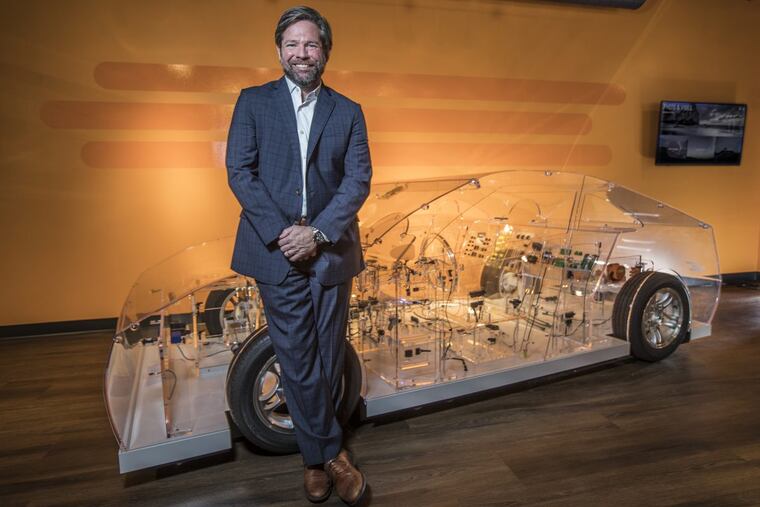TE Connectivity boosts sales despite tax hit (Update)
Berwyn-based TE Connectivity reported a surge in new orders this winter for its undersea cable service.

Shares of TE Connectivity rose as much as 5 percent Wednesday, topping $105 for the first time, after the Berwyn-based electronic-parts maker reported a surge in new orders from clients such as Google, Facebook and global carmakers, despite a tax restatement that wiped out fourth-quarter net income.
The company reported net sales for the three months ended Dec. 31 hit $3.5 billion, up 14 percent from a year earlier. More than half the growth came from new sales by established TE Connectivity businesses, the rest from newly acquired units. The company expects sales will total around $3.6 billion in the quarter ending March 31, up 12 percent over last year.
Despite rising sales and higher profit margins, TE Connectivity reported a quarterly loss, totaling $40 million, or 11 cents a share. That's because it was forced to declare past losses it had hoped to use for future tax relief as a result of last year's U.S. income tax overhaul. The company has been reviewing facilities for closure and sale; for example, its former AMP/Tyco Electronics office building in Harrisburg is for sale because the company moved offices to Middletown.
Since the company's legal headquarters is in Switzerland, it won't benefit from lower U.S. corporate rates, and the tax legislation will have little impact on TE Connectivity's investment decisions, chief executive Terrence Curtin told investors in a conference call.
A majority of TE customers and factories are outside the United States. Despite relatively slow growth in world automotive and factory production, TE Connectivity was able to boost sales by concentrating on hot sectors such as factory automation sensors at a time when manufacturers are rapidly replacing human workers with robots.
New orders for the quarter, the first of the company's new fiscal year, totaled around $3.9 billion, including plans for undersea cables linking Europe, the U.S., and South America.
In the automotive sector, TE Connectivity's "transport margins came up strongly," and sales grew several times faster than world auto production. Indeed, demand for TE Connectivity auto electronics connectors, sensors, and assemblies is "decoupled from global production" and rising even where car and truck sales aren't going up, noted Wamsi Mohan, analyst for Bank of America, on the investor conference call.
But electrical vehicles are "still a small market today," compared with internal-combustion cars and trucks, noted Craig Hettenbach, analyst for Morgan Stanley. Where, he asked, is the growth coming from?
Curtin said the decline in diesel-vehicle sales (following revelations that diesel-maker Volkswagen lied about engine pollution) had boosted demand for electric-car parts faster than expected, especially in Europe. While the company now supplies around $62 worth of components for every electrical vehicle made, Curtin says the company has developed programs to sell up to $500 worth of sensors and assemblies per vehicle, "whether it's a wireless or a connected solution." He also said Chinese vehicle-electronics parts demand has been "very strong."
The move by U.S. companies to expand data centers supporting remote cloud-computing and wireless applications has also juiced sales, Curtin said.
The company's SubCom (Submarine Communications) business recently announced orders to run private cables under the Atlantic to Denmark and under the Pacific to Chile for Google and its partners. "Google and Facebook are building more data centers, and we [build] the high-speed backbone to really make those data centers work, with data traffic, and especially with video," Curtin added. He acknowledged the complexity of these cable projects means they have taken longer than expected to prepare.
Outside of SubCom, with its "lumpy" pattern of sales and profits, "our business is a lot of small projects," Curtin said. Overall sales are up because manufacturers of medical devices, appliances, vehicles, and data services are all automating their processes and products rapidly, regardless of the manufacturers' unit sales to their own customers. So "we are getting the benefit of the cloud and of miniaturization," Curtin concluded. "It's nice, and it's not one thing. The take-up rates are heavier as we see volumes stronger."